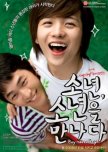
First step in a career in favor of LGBT people
'Boy Meets Boy' is a South Korean short film of romantic, musical, youth and LGBT+ themes, premiered at the 13th Pusan International Film Festival in 2008, and since then it has given a lot to talk about for several reasons: it was the first film work by Kim Jho Kwang-soo, the first collaboration between this filmmaker and the screenwriter Min Yong Keun, and presented for the first time Min Soo and Seok Yi, two characters that he would return to the following year to form the wedding couple of the short 'Just Friend?', also following up Min Soo in Love 100°, another short of his authorship, from 2010.Since then, the South Korean filmmaker showed signs of taking his time to weave the story with the thoroughness that has always characterized him, working like a craftsman in his eagerness to recreate every detail.
The director of 'The New Employee: The Movie' (2023) has spent almost two decades building an authorial block of unusual quality in the history of South Korean cinema, full of triumphs and very few mistakes. Throughout his work he has not only made important films, series and short films, but through them he has known how to rewrite the history of his country anchored to its most recurrent film themes and objectives: such as sexual awakening, most of age, sexuality, gender identity, being queer in a heteronormative and discriminatory society towards LGBT+ people and activism in favor of the rights of this group to which he himself has acknowledged belonging since 2006.
To film the short, he based it on Min Yong Keun's script of the same name about a love crush, in a festive and magical way. The film, without spoken dialogue, describes the relationship between Min Soo (Kim Hye Sung), a boy who loves photography and is gay, and Seok-Yi (Lee Hyun-jin), who seems a little tough but still manages groom to show your soft side. It also tells us about the indecision when it comes to expressing feelings and the need to be brave and go in search of love when it has arrived at your door.
Despite its short duration and the incorporation of music, dance and a magical fantasy, the viewer manages to maintain the common thread of the story in that elegant background of love at first sight.
At one point in the film, Kim Jho Kwang-soo, wang-soo, who collaborated with director Lee Song Hee Il to produce 2006's 'No Regret,' considered "the first real Korean gay film," and has shot others gay-themed works such as 'Two Weddings and a Funeral' (2012), 'One Night Only' (2014) or 'Made on the Rooftop', and the BL series 'The New Employee', introduces a fantastic character in the form of a fairy which comes to represent Min Soo's thoughts as someone who falls in love for the first time.
Despite not having dialogues, the filmmaker manages to make the audience identify with his characters, in addition to clearly establishing the relationships between them, through looks, gestures, expressions, body language and useful inclusion of the fairy (Yeh Ji-won).
The fairy symbolically represents the thoughts and feelings of the boy who has just discovered love for the first time in his short life: the nascent passion, the sexual awakening, the discovery, the acceptance, the insecurities, the fears, the worries, the fears, excitement, enthusiasm, innocence, naivety, and expectation, all in a mixture that explodes in unison.
With a palette of bright, festive colors, and corny and strident music to identify the fairy, but restrained and romantic to enhance the mood of the characters and set the tone of the film, the director guides us towards the discovery of love and sexuality in a new and unique experience for the character.
Of an autobiographical nature, the director himself stated that he based the story told in 'Boy Meets Boy' on his first love experience.
I liked the chemistry of the two protagonists, palpable from their first meeting on the bus. They are both adorably acting actors whose performances are enough to recommend watching the film.
Also highlight the use of Min Su's film reel as a symbol of love and life, by first representing the union of the two protagonist boys, and then serving as an invisible and conductive thread that, in constant movement, like life itself, unites all the characters.
Was this review helpful to you?
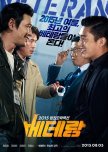
miss bong nice!
watched so i could be prepared for the sequel thats coming out this year with jung hae in. it was funny and action packed. a great watch for anyone in need of a pulpy action film.i will say though it was a bit weird seeing yoo ah in play a character addicted to drugs knowing what we know now. hopefully he is able to get rehab and get to the other side of his addiction.
Was this review helpful to you?
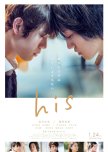
lento mas necessário
decidir rever este daqui após assistir a distance place é meio funny saber que apesar de um ser baseado no outro, os dois seguem caminhos distintos em que:his; tristeza -----> felicidade
a distance place; felicidade ---> tristeza
sobre his é muito bonito o jeito que a história se constrói. é um desenvolvimento lento porque ele precisa ser lento. existe um processo de cura e perdão entre os personagens que é necessário que as coisas não sejam apressadas. tanto na relação shun-nagisa e nagisa-rena não existe um lado certo, são pessoas com sentimentos reais e nem sempre as coisas são fáceis mesmo. todo o sentimento de medo, acolhimento e amor que se passa aqui é muito reconfortante, nem sempre as pessoas vão lidar bem com o que você é mas os sentimentos de pertencimento a algum lugar em conjunto com o acolhimento são definitivamente uns dos melhores que existem.
p.s. eu gosto muito de como o Japão consegue fazer cenas extramente aconchegantes, me senti parte da família.
Was this review helpful to you?
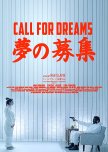
"Darkness makes me nervous"
If you threw some David Lynch and Wong Kar Wai movies in a blender along with the mood and palette of Blade Runner, mixed them up and threw them on a canvas, you would get a psychedelic Jackson Pollock work of twisted dreams and reality battered with ear and eye piercing sound and colors titled, Call for Dreams.“Every act of recording transforms the present into memory.”
Eko runs an ad in the paper soliciting a Call for Dreams. She receives messages about people’s dreams on her cassette answering machine. If she chooses the person, she helps to reenact the dream, much like a call girl only without the sex. Somehow the dreams shared and reenacted become intertwined with reality. Or do they? There is a fine line between dream and dreamer, reality and alternate realities, perhaps even sanity and madness.
“There is no ‘real’ anymore. You choose to act in a reality of your choice.”
The world Eko resides in is eternally dark and raining. Blue and pink lights follow her juxtaposed with pungent greens and yellows, and pops of retina damaging reds. City nightlines are showcased as she hurls through brightly lit tunnels. The music, colors, and movements twirl surreally as in a dream state. Only when the camera focuses on a police officer in Israel does it appear anchored in reality and then like a puff of smoke, the reality changes.
“People want to remember events, not necessarily in the way they happened.”
Is the film about dreams, reality, or memory? Only director Ran Slavin knows for sure. If you are in the mood for a mind tripping, illusion of reality and dream, this might be one to try. Keep in mind, “Is the dreamer dreaming the dream or is the dream dreaming the dreamer?"
11 April 2024
Was this review helpful to you?

Interesting but not very good
The lesson behind the movie is actually quite meaningful. Teaching you to love yourself and also to appreciate everything you have - from the biggest to the tiniest details of life. However, the movie is just not great. I am sure all the actors and actresses did a great job and hard work bringing this movie to life, however, it still did not really bring the entire movie to life. There are various gaps here and there. The little touch of Alice in the Wonderland is also quite interesting, but not good. The song written by the male lead in the movie is very nice though. Really love that song.Darren Chen as bad boy in this movie, so not nice lol. On the contrary, quite the turn off for me.
Rewatch value, for me personally... I won't go for a 2nd. Was a nice to watch the first time, that is about it.
Was this review helpful to you?

This review may contain spoilers
Had high expectations but did not understood the end
Didn't understand the end, im gonna need someone to explain to me.The beginning is pretty interesting but after a certain point it started to get confusing. After Miso's fiancee dies I started to get confused because closer to the end someone else also dies but at the very last scene, her best friend shows up again so for me it isnt clear if she died or not. Also it showed blood on a hospital bed, how did she end up there? was it after giving birth?
Was this review helpful to you?
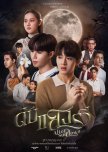
No logic, no cohesiveness, no brain… and I have no self respect for watching this.
When watching this movie, every new revelation made me ask one simple question “why?” - everything about the characters, their relationship and plot progression was so unnatural all I could do was laugh about the piling up cliches.Alpha male with a soft heart and an innocent kid with a warm nature will give you a second hand embarrassment with every little ridiculous interaction and painful dialogues. Who needs decent writing when you can just throw poorly executed cliches at your audience?
And the ending? I don’t think I would manage to write something similar even on crack. What happened? How high were the characters? How high was the writer? It took me 30 minutes to finish the last 10 minutes. I kept pausing because my brain could not take this level of prolonged idiocy.
Acting wise… I think it’s time for me to leave the delulu land and admit Zee is not really a good actor, he is just good at delivering heart eyes. It truly pains me to say, since I basically wrote an essay about how amazing of an actor with great potential he has 4 years ago. On the other hand NuNew did quite well trying to deliver good performance even though the script made it an impossible task.
Overall, I regret watching it alone. I think this is a perfect title to group watch and joke about all the stuff that makes no sense. The movie truly invites you to rant your heart out.
Was this review helpful to you?
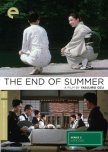
"Is this it? Is this really it?"
“Life is a running stream, forever changing.” Ozu Yasujiro once again examined how the world was ever changing and its effect on the individual and family dynamics. In his penultimate film, The End of Summer, a care-free father who does what he wants regardless of public opinion causes headaches for his family.“With so many captains, this ship will end up in the mountains!”
Manbei is a widower and owner of a small sake brewery that is beginning to fail. He spends most of his time disappearing during the day which causes consternation for his family and employees. Turns out he is seeing an old mistress again. Aside from his day pleasures and business concerns, the family is also trying to match-up Akiko, his widowed daughter-in-law, and also his younger daughter Noriko. Neither woman is receptive to the overtures of the men provided. Akiko is happy as she is with her young son. Noriko is in love with an assistant professor who moved away. Fumiko is the daughter who chastises the father for seeing the woman who had made her mother cry when she was alive. Manbei possibly has another daughter by the mistress though he is the only one who believes that. Yuriko’s only interest in Manbei as a potential father is securing a mink stole from him. Everything is fun and games until Manbei suffers a heart attack one evening which draws the family together.
“He did as he pleased his whole life…but he was also quite happy. It’s a rarity these days.’”
While the rapscallion of a father led his family on a merry chase, it was the sisters-in-law who captured my attention. Ozu made no moral judgements on the promiscuous head of the family but I found his childish behavior tiring. Akiko and Noriko (familiar Ozu names) had one of the most beautiful bonds in filmdom. Akiko gave Noriko advice on life and relationship matters. Akiko told Noriko when considering a husband, that character was more important than conduct, conduct could be changed but character couldn’t. Noriko wouldn’t allow Akiko to speak poorly of herself, charging her 100 yen every time she referred to herself as old. At the mother’s memorial service, they walked by the water and gracefully squat to talk perfectly in sync. Near the end of the film in a solemn moment they did the same thing. Despite being told differently by everyone else, the two mirror the father’s life philosophy and chose the paths that were right for them.
“I do miss the old days”
The changing world also crept into Ozu’s style with flashing neon lights used in several scenes. Instead of the rectangular imagery often used, the circular sake barrels were reflected in much of the family’s décor. Music and names in his movies were often repetitive as if they were barely an afterthought. In this film he used the composer from Good Morning. Though slightly more intrusive, it was mostly limited to transitions between scenes. Bird songs, crickets, and rhythmic drumming filled most scenes as characters talked with each other in their carefully composed settings. In two critical scenes, the faint whistle of the trains he loved could be heard. It was time for a long trip for one of the characters.
“Destiny is a strange thing.”
The ending of the film was darker and more somber than most Ozu films. Crows and the crematorium smokestack dominated the scenes with a couple of farmers ruminating on the cycle of life. Perhaps Ozu was contemplating his own death more. His mother died in the same year this film came out and he would die of throat cancer in 1963. That’s not to say the film was downbeat. Manbei provided humorous hijinks and the sisters-in-law provided a warm united front as they mapped out their own futures. The End of Summer provided a curious mix of humor and pathos with the scales carefully balanced in Ozu’s favor.
11 April 2024
Was this review helpful to you?
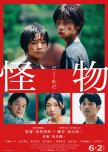
SO GOOD
I think the best way to describe this movie is, beautiful but painful.The beauty in every scene, you can literally see the efforts of the actors/actresses and the whole team.
The story is so good and I loved how we can see the differences in the povs.
This is such a great criticism for the society, they're children, they should be allowed to enjoy their childhood without feeling pressure of what the society will say.
Was this review helpful to you?
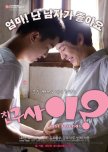
More than friends in a homophobic country whose army punishes homosexuals with triple humiliation
'Just Friends?' (친구사이? / Chingu sai?), a South Korean short film that follows two young people who are not just friends, but something more.Starring Lee Je-Hoon and Yeon Woo-jin (sometimes credited by his former stage name, Seo Ji-hoo), the short film follows the secret romance between Seok Yi, a college student who works part-time at a restaurant and faces the dilemma of whether to leave school to focus on his culinary aspirations or fulfill his mandatory military service, and Min Soo, a young soldier who is serving in the armed forces.
For some time they have planned to enjoy a romantic weekend, and Seok Yi travels to the city near the South Korean capital where the military base is located to meet Min Soo again and be able to carry out his plans, but they will not go as planned. While they are enjoying their meeting, Min Soo's mother appears, who has also gone to visit her son and is unaware of the bond between the young people.
When the mother (Lee Seon-joo) asks him about their relationship, so as not to reveal the truth, Min Soo replies, "...we are just friends."
With his mother, Min Soo has a close relationship. We'll see how she playfully makes fun of him, asking him if he's not going to sleep on her chest, and reminds him that he used to call her "boob mom," and he responds that's how he acted when he was little, and then confesses to Seok Yi , who sleeps next to him after missing the last train, who as a child used to sleep on his mother's chest to cheer himself up.
In this way, Kim Jho Gwang-soo, as writer and director, is weaving a story in this short film of the youth romantic comedy-drama genre with an LGBT+ theme that, released in 2009, aims, in addition to telling us about another cycle of release coming out of the closet, showing, with naturalness and simplicity, the relationship between gay men and their families in a conservative society where parents consider any homosexual act a crime.
It is also proposed to denounce homophobia within the Army and South Korean society in general, as well as to make visible the risks, including criminal ones, to which homosexuals are exposed in the military forces of said country.
The denunciation of institutionalized homophobia in the army is shown in a very subtle way. After arriving at the military base in Cheorwon to meet her boyfriend, after traveling from Seoul, Seok Yi has to fill out a contact form in which she must state, among other details, what relationship she has with the person she is contacting what a visit
Elated to be able to see Min Soo after a while, when answering this question in the official document he writes the word "lover". Realizing the risks that his mistake entails for both him and the soldier, he tries to obtain a new form to write "friend" and thus circumvent any suspicion about the type of relationship that both maintain, but when he fails to obtain it, he is forced to carefully cross out what is written and in its place draw the other word.
Homophobia will haunt them throughout the short film, which lasts about 30 minutes. The fear of suffering from it if they are exposed as homosexuals is shown in various ways, and the two lovers will have the urgent need to hide their homosexuality to comply with what a conservative country with strong patriarchal and heteronormative traditions demands of them.
For example, Seok Yi strikes up a conversation with Chae Eun (Lee Chae Eun), a girl on the bus in which he makes the trip and with whom he will be very careful to avoid pronouns when referring to her boyfriend. He will show her a homemade cherry candy he made himself to share with her boyfriend. However, at the moment he delivers the gift to Min Soo, he notices the presence of the girl, who is watching the lovers from a nearby table. Seok Yi's hasty reaction is to snatch the dessert from Min Soo's hands and put it back in a bag, as he had assured the young woman moments before on the road that it was a gift for her partner.
Internalized homophobia as an accompaniment to homophobia is also reflected. Seok Yi will reject Min Soo when he approaches him to kiss him in public and will not shake his hand in the street so as not to be a victim of hatred and intolerance, and will tell the girl who returns with him to Seoul: " Today I also hate being a man!" This is how he expresses feeling harassed and excluded by his loved ones and society.
In its second part, 'Just Friends?' It is filled with joy, enthusiasm and hope. While Min Soo sings a sad but hopeful song to her mother that reflects the feeling that despite liking men she will become happy with the person she loves, we will see the two lovers reunited again, after Min Soo obtains a period of leave from military service.
He will go to look for Seok Yi at work and both will walk the streets of Seoul showing their love in public.
Min Soo has found the exact words to describe the person he will introduce to his mother: "I want you to meet my boyfriend."
The lovers are ready to combat the discrimination that awaits them, after acquiring a mutual, shared feeling that allows them to overcome the feeling of shame and self-exclusion.
'Just Friends?' It has a happy ending that proudly celebrates the love, identity and struggle of homosexuals for their freedom and happiness, and it is something to celebrate doubly, since the short film is a pioneer in South Korea by reflecting a homosexual relationship in a country where Today, in the 21st century, there is resistance to recognizing equal marriage, and even more so against the backdrop of that country's army.
South Korea is a conservative society and the only developed economy in the world in which consensual sexual relations between two men are a crime under military law, and if discovered and charged, every officer or soldier potentially faces a triple humiliation: a sentence penal, an exclusion from the army for unworthiness and a forced coming out of the closet in the face of society and his parents, who describe themselves as "conservative and devout Christians", as the short film clearly reflects on Min Soo's mother.
Intentionally and intelligently, Kim Jho Gwang-soo places one of his protagonists involved in the army of a nation in which, according to article 92.6 of its Military Penal Code, soldiers who have homosexual relations face two years in prison and forced labor if convicted by a court-martial.
Based on his own personal experiences as a gay man, the director and screenwriter expressed, "I wanted to create a real gay film with 99.9% purity, after observing that many Korean films in the past contained misleading depictions of homosexuals." Kim also stated that after completing her 2009 short, 'Boy Meets Boy', which focuses on a first romantic encounter of two teenagers, she wanted to create a successor that involved more mature themes.
Produced by the company Generation Blue Films, in collaboration with Korean Gay Men's Human Rights Group Chingusai, which shares the same name as the film's Korean title, 'Just Friends'? It had its world premiere at the 14th Pusan International Film Festival on October 10, 2009. Before its theatrical release on December 17 of the same year, it was screened at the 35th Seoul Independent Film Festival. The following year, the work was screened at film festivals in Italy, the United States, Japan and Hong Kong.
With music by Kim Dong-wook, photography by Kim Myeong-Joon and editing by Nam Na-yeong, the film, due to its subject matter, has been involved in a rating and censorship controversy.
Before its release, the Korean Media Rating Board (KMRB) called the film's trailer "harmful to youth." In November 2009, KMRB gave the film a "restricted to teens" (19+) rating, citing "sexual situations" and "risk of imitation."
This decision generated criticism from artists, intellectuals, and politicians, who argued that the KMRB was reviewing homosexual-themed films with different criteria than heterosexual-themed films.
In September 2010, the film's producers, Generation Blue Films and Chingusai, filed an administrative contentious lawsuit against the KMRB, asking the Seoul Administrative Court to cancel the film's classification. The court ruled in favor of the plaintiffs on September 9, stating that the film "provides understanding and education about minorities." Despite this, 'Just Friends?', 15 years after its release, continues to be condemned by the most conservative members of a society who still claim that the film contains scenes that "would provoke sexual curiosity in young people."
'Just Friends?' has other values, being Kim Jho Kwang-soo's second film work as director and screenwriter, the second collaboration between this filmmaker and screenwriter Min Yong Keun, and presenting for the second time Min Soo and Seok Yi, two characters that the The previous year he introduced them to form the protagonist couple of the short film 'Boy Meets Boy', also following up Min Soo in 'Love 100°', another short film he authored, from 2010.
Was this review helpful to you?
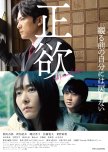
This review may contain spoilers
A lot of layers to this one. Complex and gripping.
Seiyoku/(Ab)normal Desires is a challenging story which presents the viewer with many societal issues that are confronting and complex.With an overarching focus on where sexual minorities fit into this world, we are shown main characters struggling to accept themselves, and struggling to be accepted by the outside world for their sexual fetishes and proclivities(In this case a fetish for water).
Shame has played a large role in molding these characters into who they are, and the actors do a fantastic role at depicting the weirdness that develops within people who can never truly be themselves, for fear of ridicule and rejection. My favourite line from the film being from one of the leads saying 'Being on earth makes me feel as if I am studying abroad'.
Throughout the film there is an undercurrent of something more sinister within the story itself, which we eventually see come to fruition right at the end of the film. Please be warned that whilst there is nothing graphic shown, there are some very confronting scenes to do with pedophilia within the last 15 minutes of the film.
A rewatch might be too much for people, but I think there is more to take from this with a second viewing down the line.
The film contains depictions of pedophilia, as well as a suicide attempt, so please be mindful of this when watching the film.
Was this review helpful to you?

"Your life is more meaningful when you are willing to face yourself'
The Heroic Trio was a weirdly, wildly, stylized superhero movie starring three of the most beautiful women in Hong Kong films at the time. Michelle Yeoh, Maggie Cheung, and Anita Mui were caught up in an evil eunuch’s plan to steal babies and install one of them as the new emperor of China. This film had a Saturday morning superhero television show quality to it, if that show had cannibalism, decapitations, and dead babies and children.Tung is married to Inspector Lau. Little does her husband know that she is the much admired hero, Wonder Woman. When babies are being kidnapped with no ransom notes the duo springs into action in their own ways. Chat, The Thief Catcher, rolls in on her motorcycle armed with a pump shotgun and dynamite and saves the day when she rescues hostages at a chemical warehouse. A superhero for hire, she gives her card to the police chief whose new baby has been targeted. Ching, The Invisible Woman, works for the merciless and powerful eunuch who lives in an enormous fortress in the sewers. The eunuch believes that, “China cannot be without an emperor.” And by that he means an emperor he controls so that he would be the de facto ruler. By day Ching lives with The Professor who invented the Invisible cloak so that when it is perfected, she can steal it and kill him. She may not get the chance as the invisibility process is deadly toxic. The three women warriors collide as the kidnappings become more complicated and deadly. The eunuch’s superpowered minion, Kau, brings danger and loss of body parts whenever he appears.
This movie was off the rails bonkers and not for the faint of heart. In Western films, killing and torturing children is right up there with killing pets, it’s rarely done, or at least not done onscreen so the cruelty toward children was quite disturbing for me. The Flying Guillotine survived the ages from the 1975 movie and made a cameo here. There were also a variety of throwing weapons, explosives, razor bladed chains, and poison darts used. The women’s most powerful weapons were the humanity and sisterhood that had almost been trained out of them. Only through their combined powers could they take down the maniacal eunuch. Many of the actions scenes were filmed in low lighting as the characters climbed, leapt, and fell repeatedly. Despite the darkness, the wires showed at times, at other times the train broke through the fourth wall. While exploring the superhero genre, the film kept its feet firmly flying in Hong Kong wuxia history as well.
What was the draw to this absurd superhero movie? The cast! Michelle Yeoh was gorgeous with her flowing hair and impeccable timing, completely believable as the conflicted anti-hero. Ching had the most painful character growth spurred by her inconvenient love for the professor. It would take Chat and Tung to give her a reason to live and break free from the eunuch’s hold. Maggie Cheung went from cocky bounty hunter to the vulnerable middle child caught between two sisters she loved. Anita Mui alternated as the devoted wife and ferocious heroine who was the moral compass of the trio. The three women each had tortuous pasts that they had to come to terms with in order to move forward.
The Heroic Trio was not a great movie but it was entertaining. At times it veered into so bad it was good, especially near the end with an unhinged final fight. Regardless of the movie's shortcomings, it's always refreshing to have competent women warriors and superheroes even if the movie didn’t always serve them well. For fans of these actresses, if you can keep your expectations low, it’s definitely one to give a try.
10 April 2024
Was this review helpful to you?

This review may contain spoilers
A film about the realities of life and the beauty of friendship
Spoilers ahed:Minor plot-holes (especially near the end) but still a very beautifully written and meaningful film about love and life. Realistic and amazing acting from everyone. Scenes fly by and the pace is good. Didn’t expect to cry at the end, but realizing the two girl’s love for each other and how the two went on to “live like each other” made me sob. At first I didn’t understand why they killed off Haeun but I realized it was necessary: it was her love for Jinwoo and want for a “normal life” that restricted her. And it killed her in the end. And her death, Mi-so expressed her love for Ha-eun. And it also changed Mi-so’s lifestyle. She continues to lie but now she does it out of love. And she works to care for others. Mi-so makes many mistakes throughout the film and I get frustrated with her at times, but she’s human. And you can’t blame Haeun for forgiving her because you realize that the two understood each other like no one else and grew up learning to rely on each other. Mi-so encouraged Haeun to live fearlessly. But they were both challenged with the reality of adult life. Even in the character’s hardships, ups, and downs, you can’t help but think “ah, so this is life indeed.” For people saying its just a movie about two girls fighting for a boy, they need to realize that this movie is not about the boy at all. He’s just a part of society’s expectations and the experience of growing up. In fact, neither girls liked him much to start with.
Was this review helpful to you?
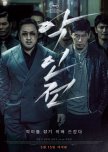
the gangster the cop and the devil
first i gotta say Ma Dong Seok acting flawlessly, amazing like.and the rest of the story its amazing it has the rush to get your blood flowing almost in my opinion like its cool to watch I like the ending when he walks and everybody greets him and he sees him *if you watch it u know what I'm saying*
Was this review helpful to you?
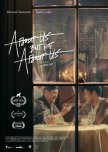
Film jiný, hodil by se na prkna, co znamenají svět, film o dvou postavách a neustálé konverzaci, komorní kousek, kdy po nevýrazném začátku, kdy divák neví, co má očekávat, se rozvine v chytře napsaný přiběh plný překvapení a napětí a oba herci, Elijas i Romnick dokázali, že se jim dá věřit, zahráli to přesvědčivě. Zajímavé ...
Was this review helpful to you?
Recent Discussions
-
Need new recommendation light rom-com drama40 minutes ago
-
 BL Drama Lovers Club3 hours ago
BL Drama Lovers Club3 hours ago -
 What made you watch Queen of Tears?3 hours ago
What made you watch Queen of Tears?3 hours ago -

-
 30000 Heat Challenge4 hours ago
30000 Heat Challenge4 hours ago

 1
1
